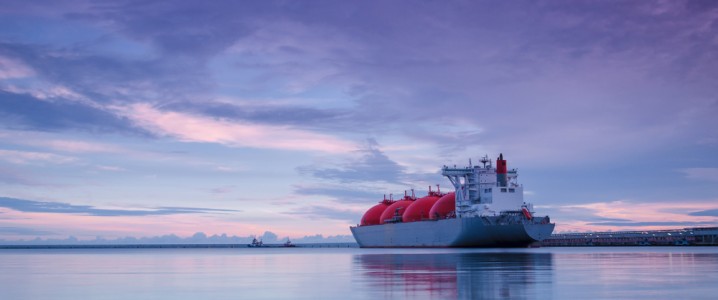Business
German Traders Seek Canadian LNG Amid Energy Supply Shift

German energy traders are increasingly turning to Canadian liquefied natural gas (LNG) to enhance their supply through swap deals. This development was highlighted by Canada’s Minister of Natural Resources, Tim Hodgson, who noted the strong interest from German companies looking to trade Canadian LNG in the global market.
Hodgson explained that these traders can leverage Canadian production on the West Coast to meet Germany’s energy needs in the Atlantic region. By selling Canadian cargoes on the spot market, they can simultaneously procure cheaper LNG for delivery to Germany. This shift comes in response to a changing energy landscape, particularly after the previous government under Justin Trudeau had indicated a lack of business viability for LNG projects during a visit from former German Chancellor Olaf Scholz.
New Government, New Opportunities
The current government is taking a different approach, emphasizing the need to adapt to present realities. Hodgson remarked, “The previous government made its decision based on the situation at the time. What we’ve been elected to do is respond to the realities today, taking into account what Canadians expect of us.”
At present, Canada operates only one LNG facility, the LNG Canada plant located in Kitimat, British Columbia. This facility began its first sales in June 2023, with an initial production capacity of 5.6 million tons per year. Once all planned production trains are completed, capacity is expected to increase to 14 million tons annually. The project, which carries a total investment of $40 billion, is backed by major corporations including Shell, Petronas, PetroChina, Mitsubishi, and Kogas.
Implications for Global Energy Markets
While the primary target market for LNG Canada is likely to be Asia due to geographical advantages, the robust global spot market for liquefied gas may facilitate deals with German energy buyers. Although the pricing for spot-market LNG will not match that of pipeline gas, it offers a potential strategy to alleviate the high energy costs currently faced by Germany, which is Europe’s largest economy and is grappling with significant challenges.
The willingness of German traders to engage with Canadian LNG marks a notable shift in energy procurement strategies, reflecting a broader trend towards diversifying energy sources in response to geopolitical pressures. As global energy dynamics continue to evolve, the partnership between Canadian LNG suppliers and German traders could play a crucial role in shaping future energy security in Europe.
-

 World3 months ago
World3 months agoScientists Unearth Ancient Antarctic Ice to Unlock Climate Secrets
-

 Entertainment3 months ago
Entertainment3 months agoTrump and McCormick to Announce $70 Billion Energy Investments
-

 Science3 months ago
Science3 months agoFour Astronauts Return to Earth After International Space Station Mission
-

 Lifestyle3 months ago
Lifestyle3 months agoTransLink Launches Food Truck Program to Boost Revenue in Vancouver
-

 Technology2 months ago
Technology2 months agoApple Notes Enhances Functionality with Markdown Support in macOS 26
-

 Top Stories7 days ago
Top Stories7 days agoUrgent Update: Fatal Crash on Highway 99 Claims Life of Pitt Meadows Man
-

 Sports3 months ago
Sports3 months agoSearch Underway for Missing Hunter Amid Hokkaido Bear Emergency
-

 Politics2 months ago
Politics2 months agoUkrainian Tennis Star Elina Svitolina Faces Death Threats Online
-

 Technology3 months ago
Technology3 months agoFrosthaven Launches Early Access on July 31, 2025
-

 Politics3 months ago
Politics3 months agoCarney Engages First Nations Leaders at Development Law Summit
-

 Entertainment3 months ago
Entertainment3 months agoCalgary Theatre Troupe Revives Magic at Winnipeg Fringe Festival
-

 Politics1 week ago
Politics1 week agoShutdown Reflects Democratic Struggles Amid Economic Concerns





















